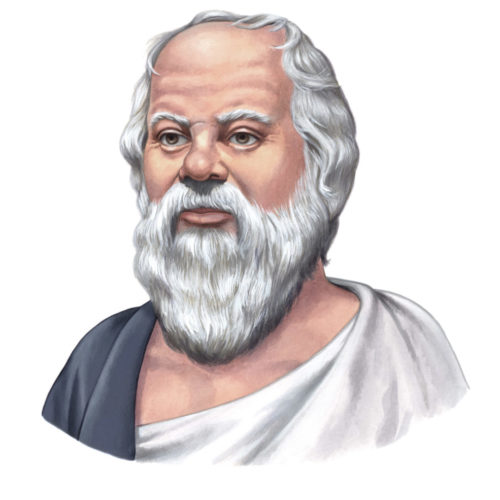Ray Kurzweil on How To Create A Mind: Be Who You Would Like To Be
Socrates / Featured Podcasts, Podcasts
Posted on: October 13, 2012 / Last Modified: June 23, 2024
Podcast: Play in new window | Download | Embed
Subscribe: RSS
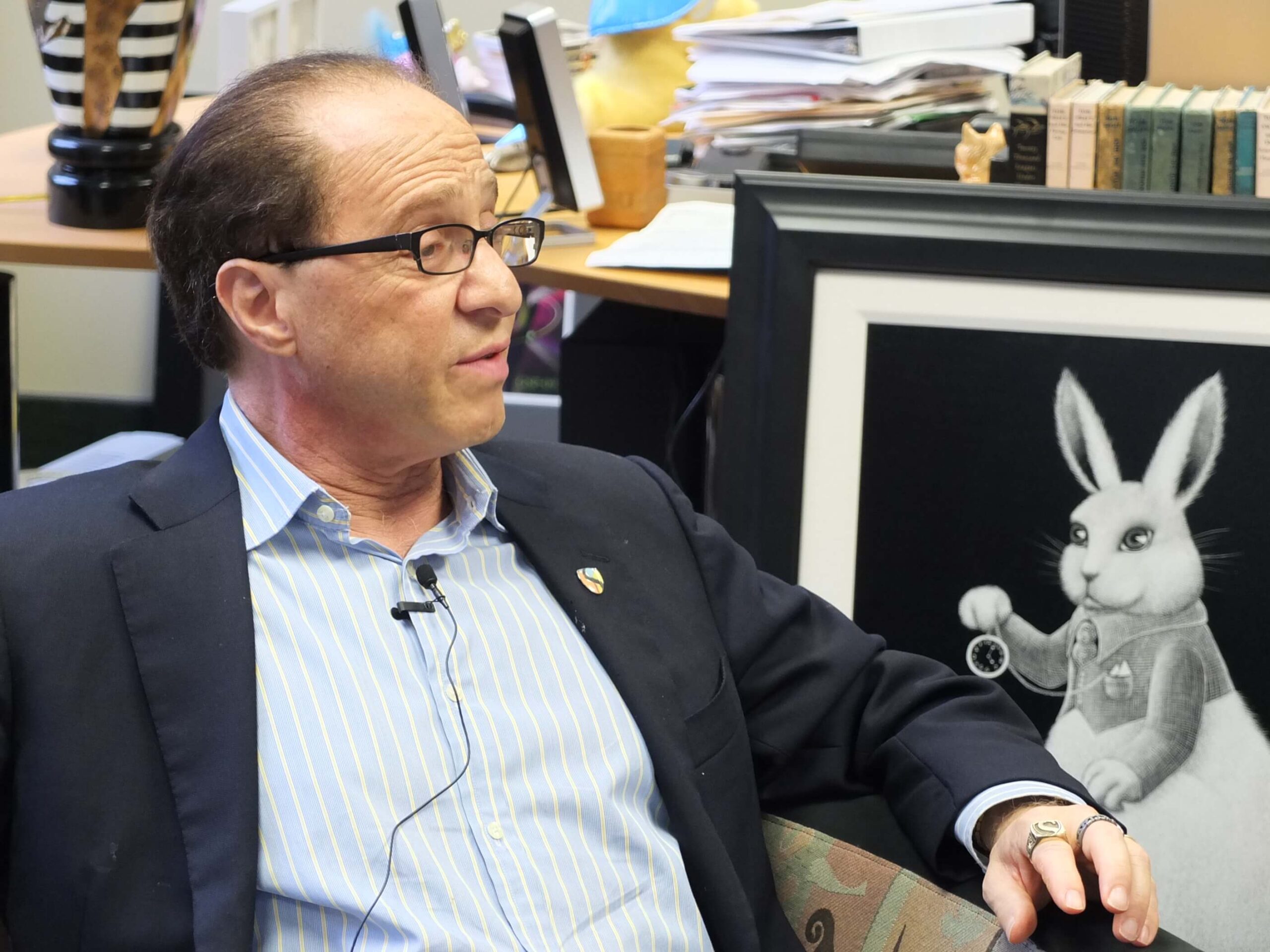
Ray Kurzweil‘s impact on my life in general but especially on what I have been doing for the past 3 or 4 years is hard to exaggerate. It is a simple fact that, if I haven’t read his seminal book The Singularity is Near, I would be neither blogging nor podcasting about exponential technologies, not to mention going to Singularity University. And so it was with great excitement and some trepidation that I went to interview Dr. Kurzweil in his office in Boston.
Part of my trepidation came from some technical concerns: I wish I could buy a better camera. I wish I could hire a team of audio and video professionals so that I can focus on the interview itself. I wish I did a better job with the setup. I wish I had noticed that Ray’s lavalier mic has slipped out of its holder… The list is exponential. Still, if there is one thing that I’ve learned since I started podcasting is that we do get better. But it takes time. Meanwhile, my consolation is that eventually, I will have to do another interview with Ray Kurzweil just so I get it right at that time. For now, however, I hope that the content of this one will make up for its technical deficiencies.
During our conversation with Dr. Kurzweil we cover a wide variety of topics such as: how and why at age 5 Ray decided to become an inventor; his unique background of being born to Jewish parents but brought up in a Unitarian Church; his early interest in issues such as religious tolerance, poverty, social inequality and justice; 3D printing, open-source, patents, progress, and intellectual property rights; Watson, artificial intelligence, the Turing Test and human rights for AI, the technological singularity and some criticism thereof; his upcoming book How To Create A Mind and his Pattern Recognition Theory of Mind; the evolutionary advantages of intelligence; the benefits of reverse-engineering the human brain for the creation of AI and whether the latter would be interested in pondering and solving humanity’s greatest problems.
My favorite quote that I will take away from this interview with Ray Kurzweil is:
Don’t be too concerned about what’s practical. Follow your passion and be who you would like to be.
As always you can listen to or download the audio file above or scroll down and watch the video interview in full. To show your support you can write a review on iTunes, make a direct donation, or become a patron on Patreon.
Behind The Curtain: Images of My Interview with Ray Kurzweil
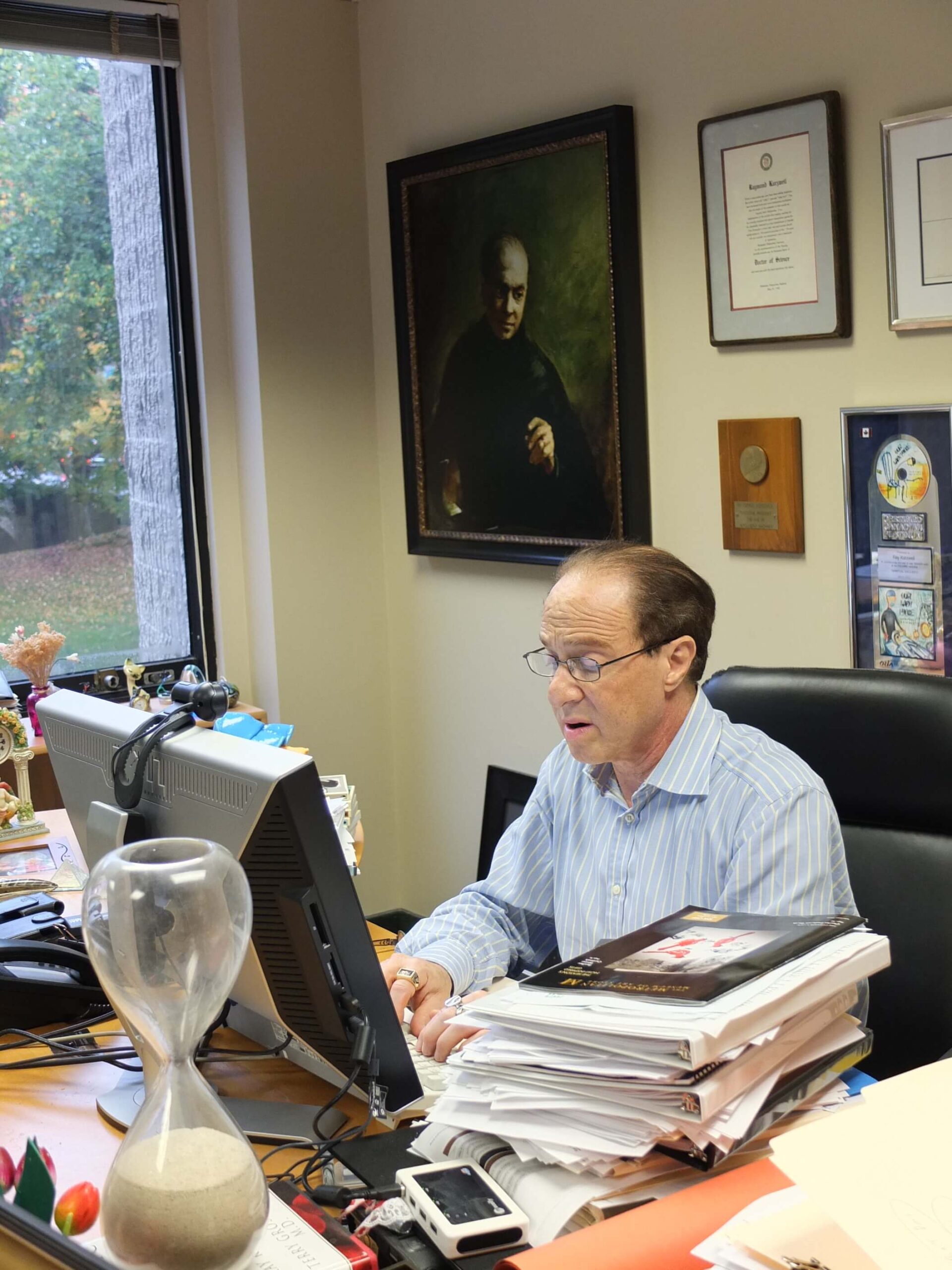
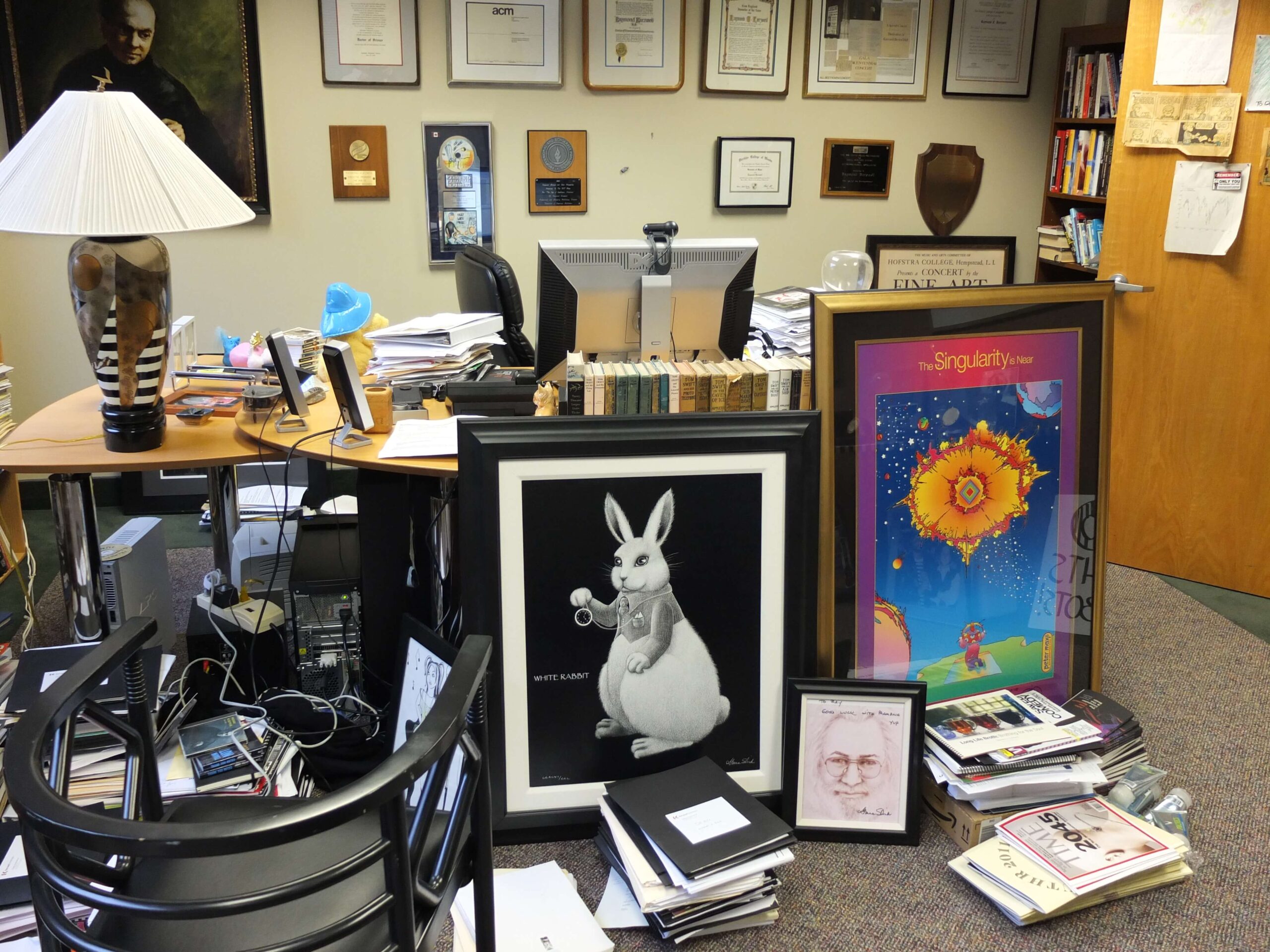
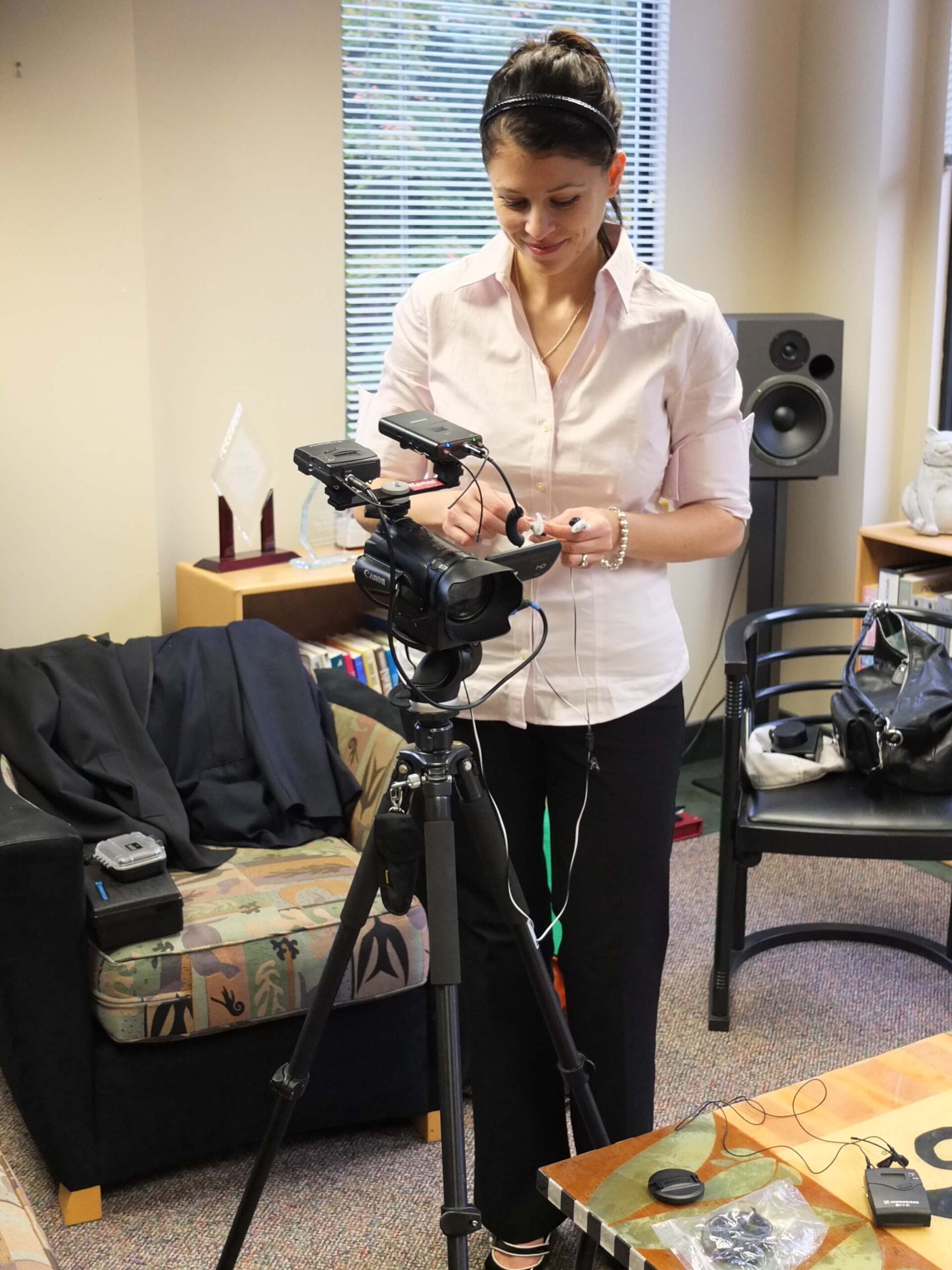
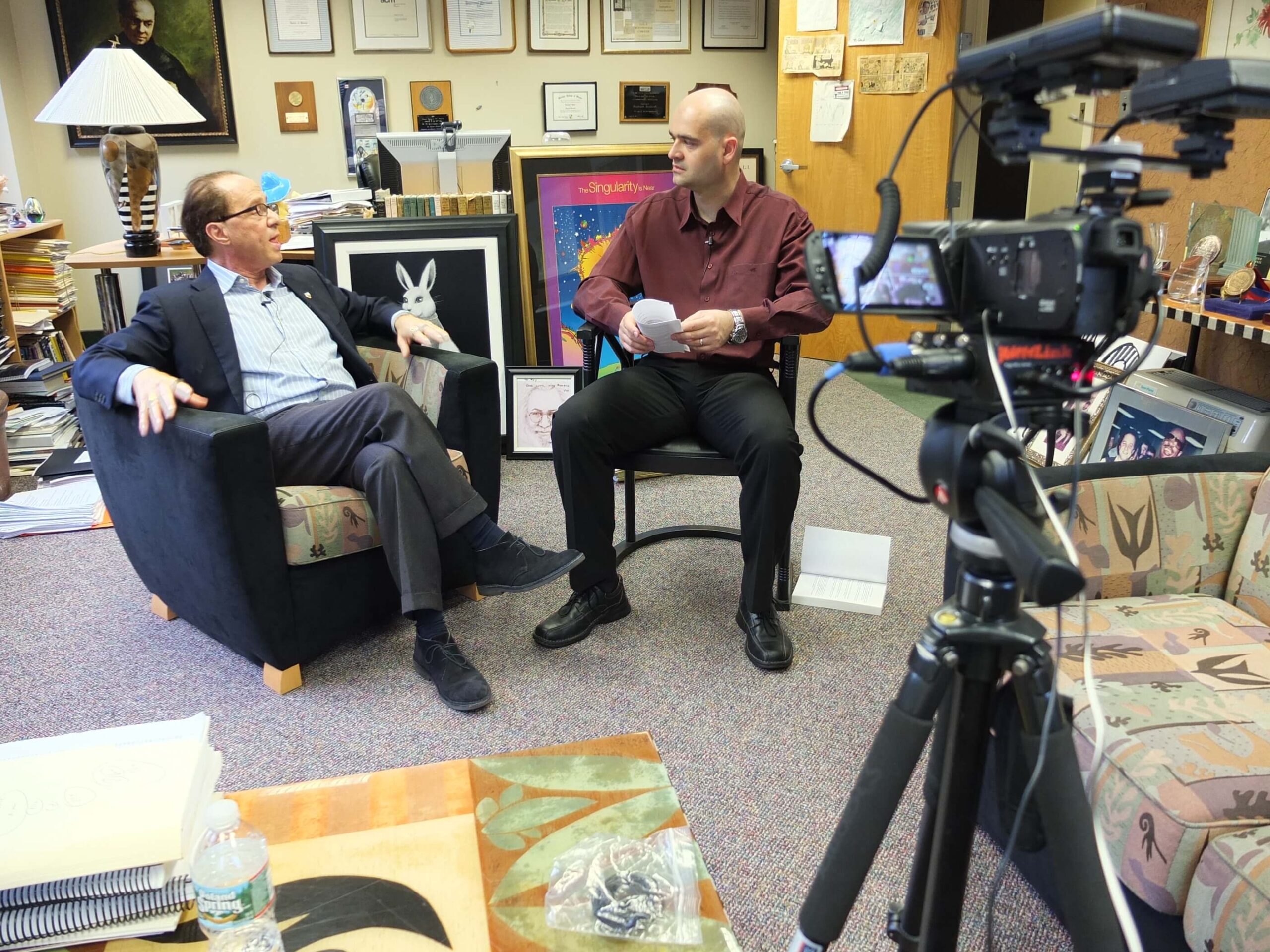
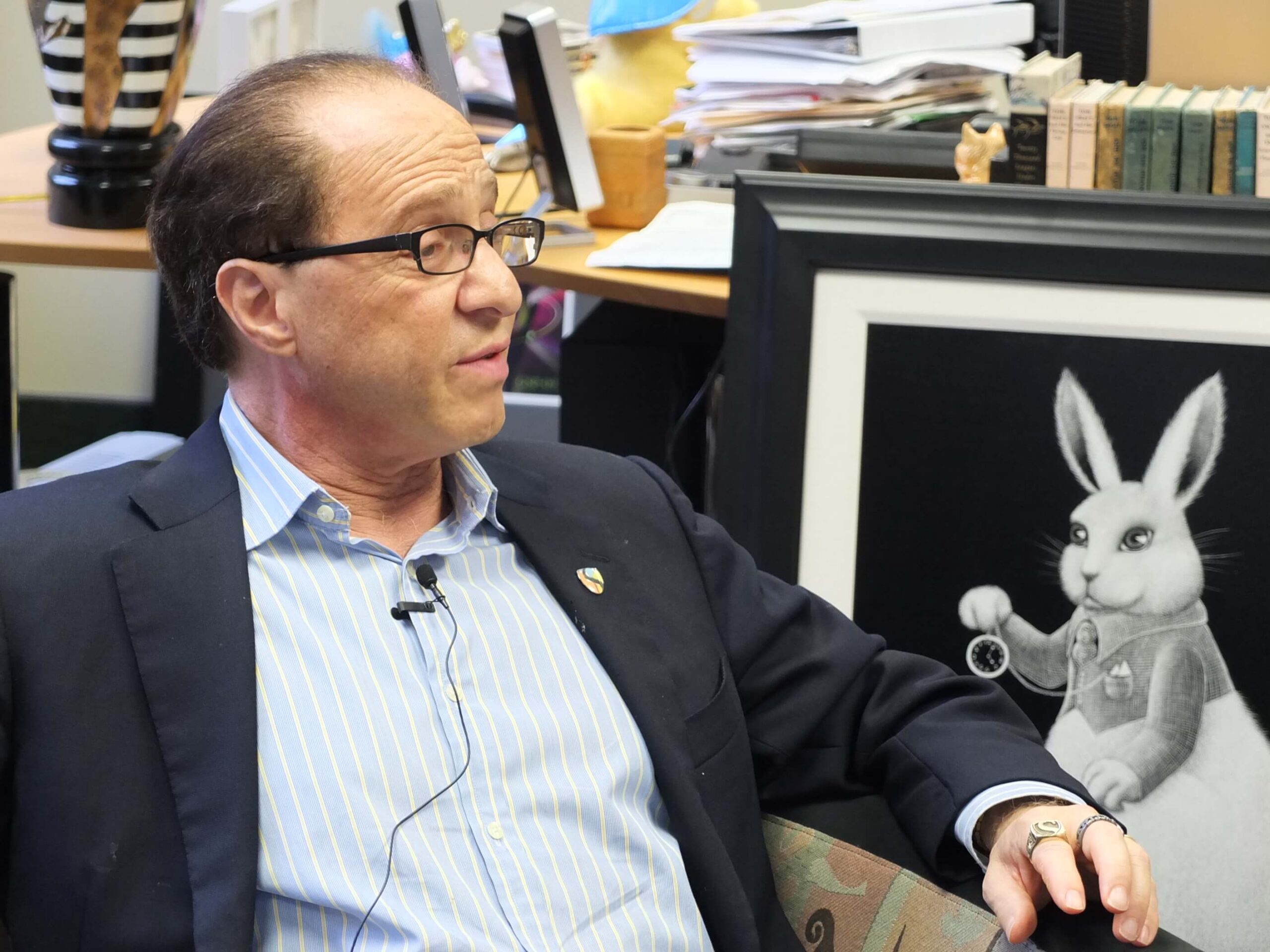
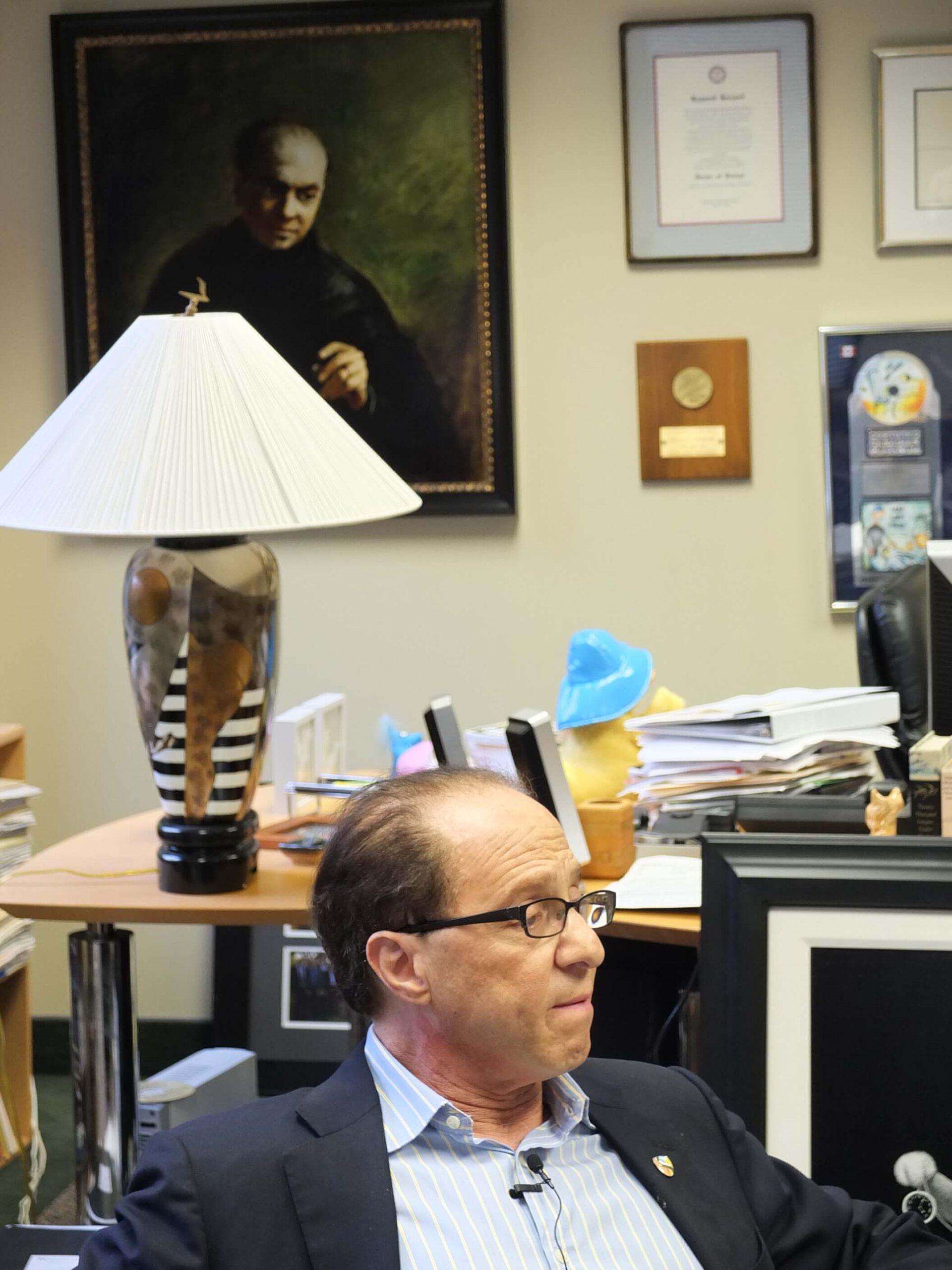
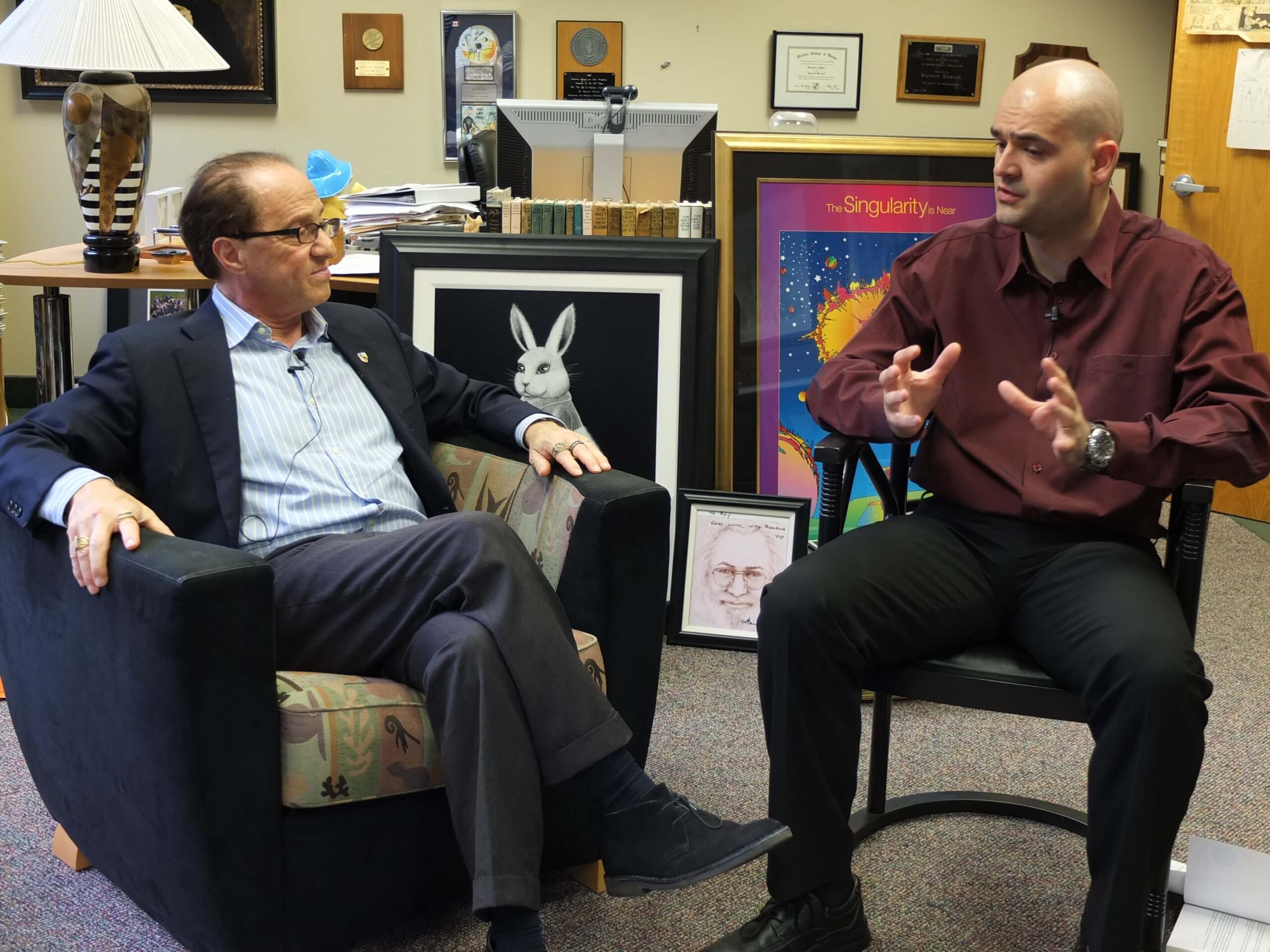
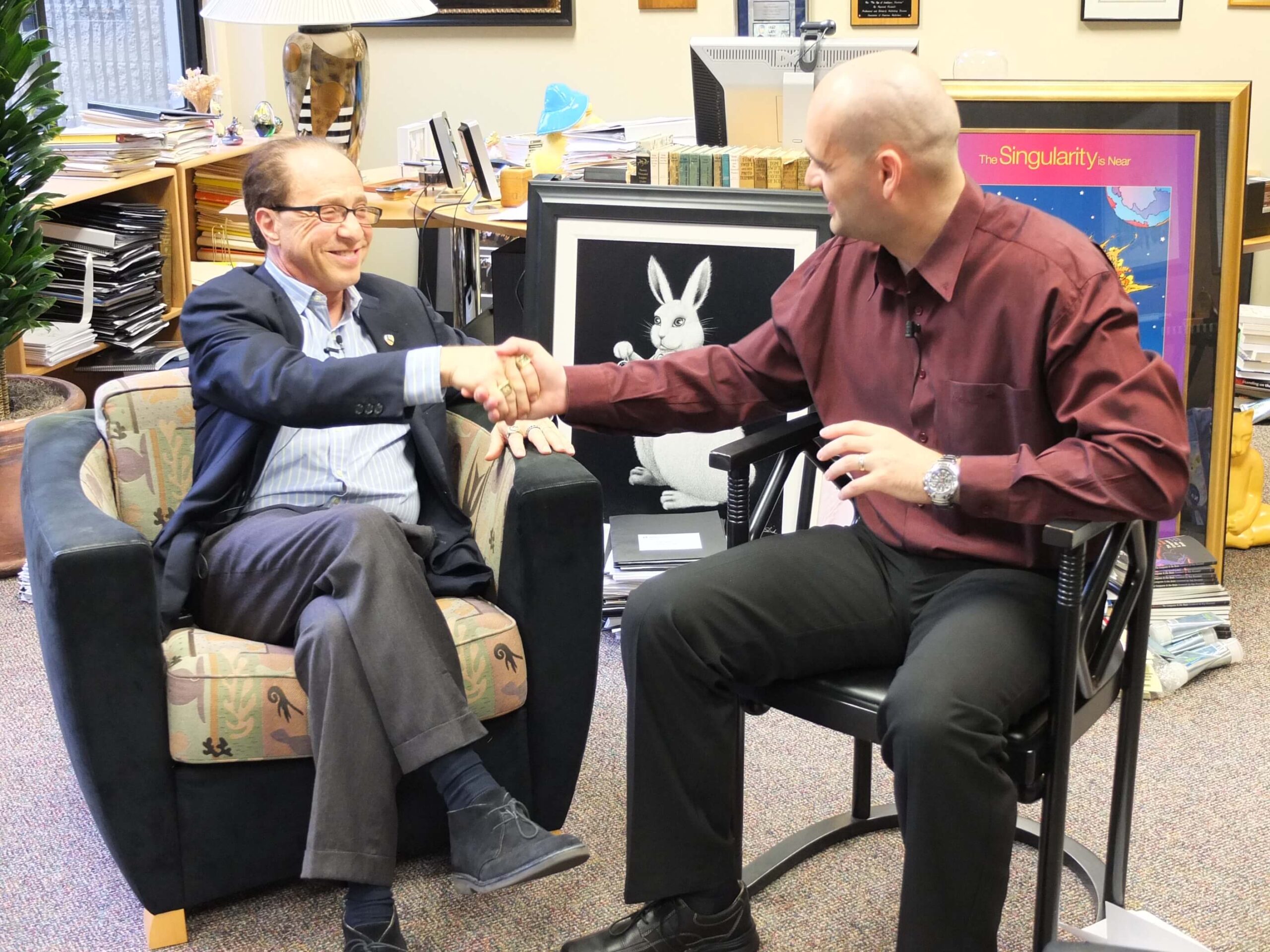
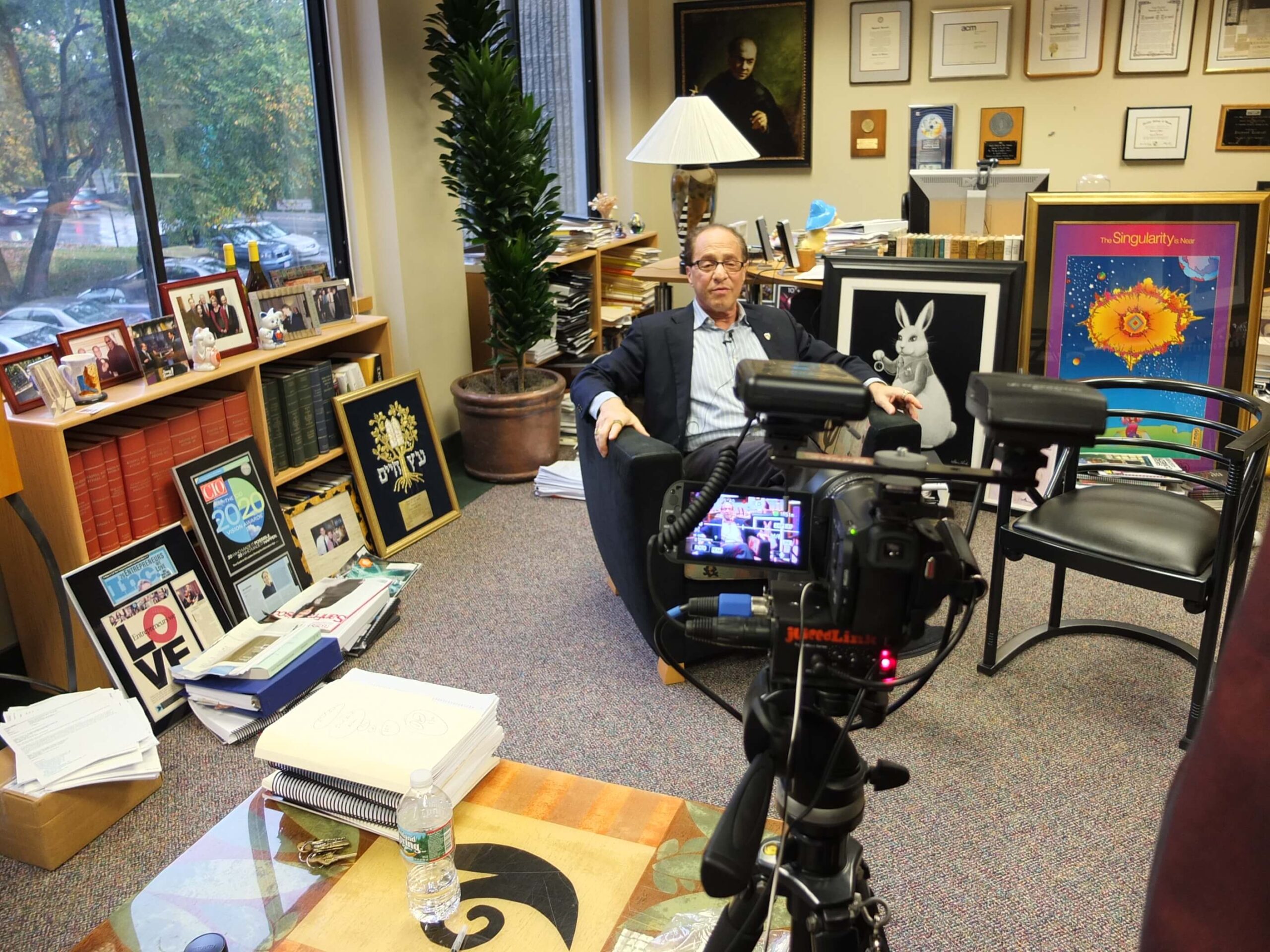
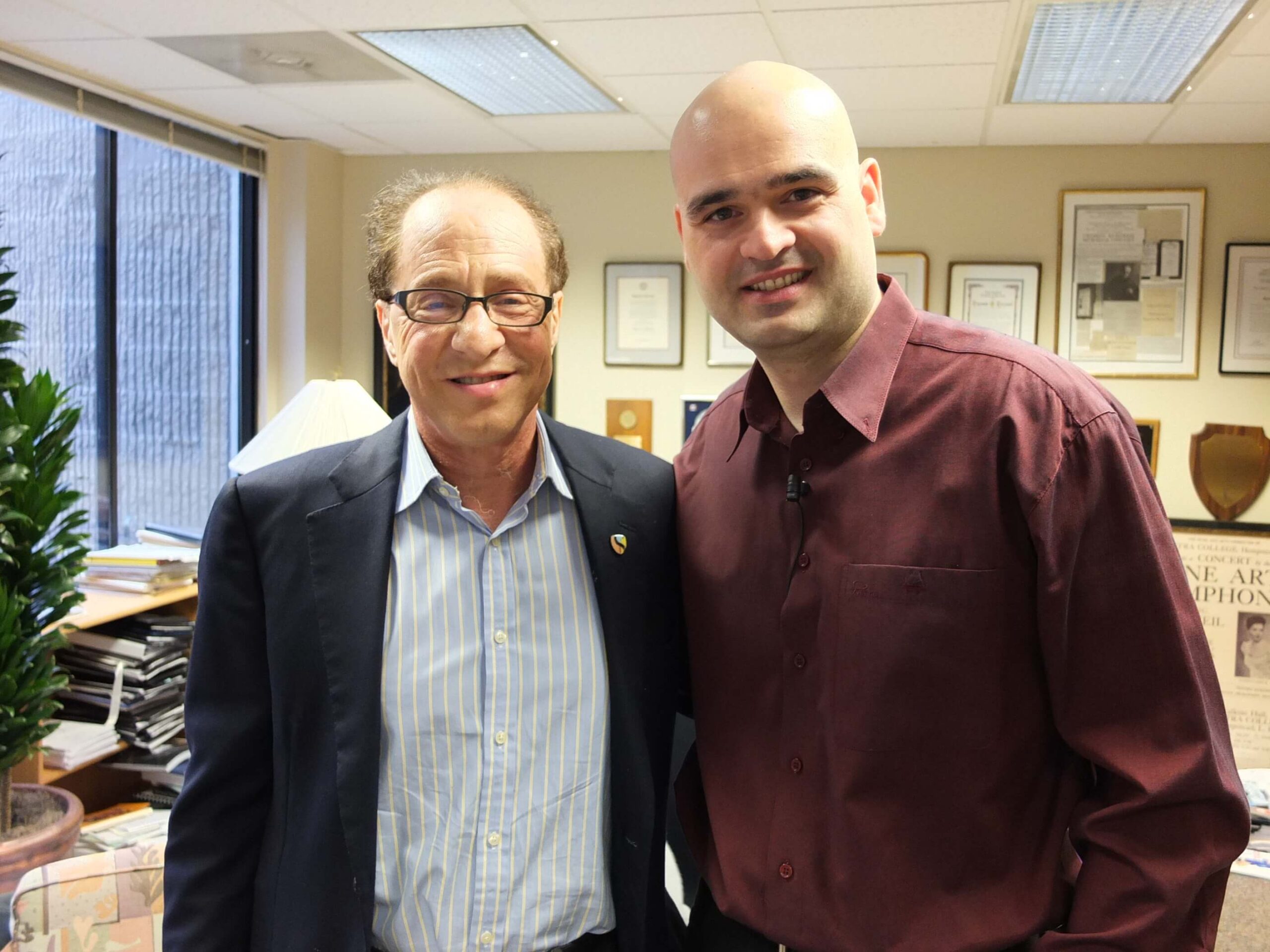
Ray Kurzweil: I Support Singularity 1 on 1
https://www.singularityweblog.com/donate-and-support-singularity-weblog/
Who is Ray Kurzweil?
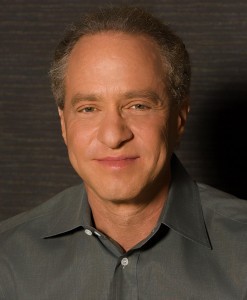 Ray Kurzweil has been described as “the restless genius” by the Wall Street Journal, and “the ultimate thinking machine” by Forbes. Inc. magazine ranked him #8 among entrepreneurs in the United States, calling him the “rightful heir to Thomas Edison,” and PBS included Ray as one of 16 “revolutionaries who made America,” along with other inventors of the past two centuries.
Ray Kurzweil has been described as “the restless genius” by the Wall Street Journal, and “the ultimate thinking machine” by Forbes. Inc. magazine ranked him #8 among entrepreneurs in the United States, calling him the “rightful heir to Thomas Edison,” and PBS included Ray as one of 16 “revolutionaries who made America,” along with other inventors of the past two centuries.
As one of the leading inventors of our time, Ray was the principal developer of the first CCD flat-bed scanner, the first omni-font optical character recognition, the first print-to-speech reading machine for the blind, the first text-to-speech synthesizer, the first music synthesizer capable of recreating the grand piano and other orchestral instruments, and the first commercially marketed large-vocabulary speech recognition. Ray’s web site Kurzweil AI.net has over one million readers.
Among Ray’s many honors, he is the recipient of the $500,000 MIT-Lemelson Prize, the world’s largest for innovation. In 1999, he received the National Medal of Technology, the nation’s highest honor in technology, from President Clinton in a White House ceremony. And in 2002, he was inducted into the National Inventor’s Hall of Fame, established by the US Patent Office.
He has received nineteen honorary Doctorates and honors from three U.S. presidents.
Ray has written four national best sellers. The Age of Spiritual Machines: When Computers Exceed Human Intelligence has been translated into 9 languages and was the #1 best selling book on Amazon in science. Ray’s latest book, The Singularity is Near: When Humans Transcend Biology, was a New York Times best seller, and has been the #1 book on Amazon in both science and philosophy.








